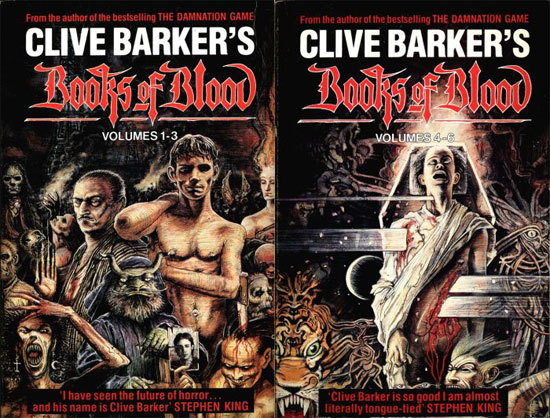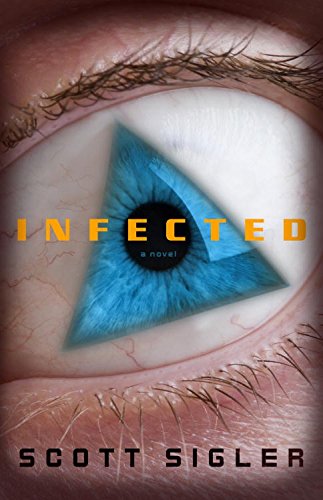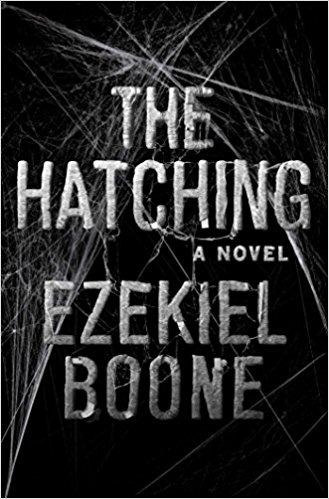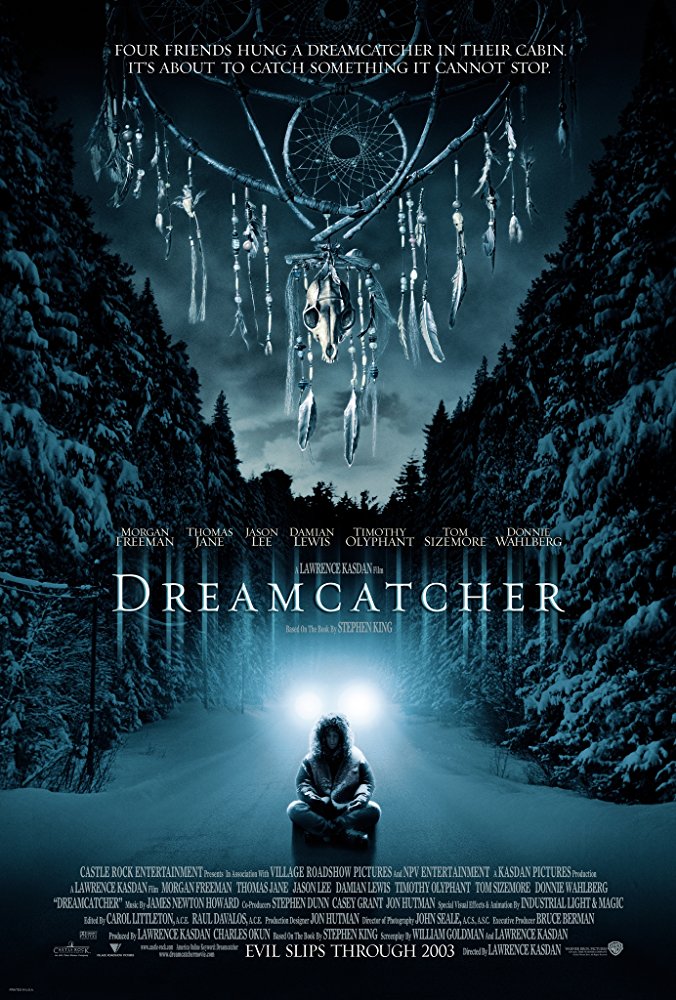 There are a spectacular number of horror movies these days. In fact, the genre is so over-stuffed with content that we are having to sub-categorize it in much the same way that heavy metal was forced to do in the 2000s. Splatter, psychological, monster, sci-fi, religious, even Christmas! Wikipedia alone lists thirty-six separate subcategories of horror! Thirty-six! But how much of that is original movie content and how much of that is based on another source? A ‘true story’ perhaps? Or a comic book? Plenty. And if it’s not based on outside content, the movie you’re watching is often at least inspired by it. But what is that content? And it being adapted faithfully? We want to see a great movie, to be entertained. However, just because the source material is good does not necessarily make the movie the same.
There are a spectacular number of horror movies these days. In fact, the genre is so over-stuffed with content that we are having to sub-categorize it in much the same way that heavy metal was forced to do in the 2000s. Splatter, psychological, monster, sci-fi, religious, even Christmas! Wikipedia alone lists thirty-six separate subcategories of horror! Thirty-six! But how much of that is original movie content and how much of that is based on another source? A ‘true story’ perhaps? Or a comic book? Plenty. And if it’s not based on outside content, the movie you’re watching is often at least inspired by it. But what is that content? And it being adapted faithfully? We want to see a great movie, to be entertained. However, just because the source material is good does not necessarily make the movie the same.
Not every movie-goer is a reader. Often, readers have already experienced a horror movie in its native written form before the film is even a glimmer in its director’s eye. Take Stephen King for example. With an army of rabid fans, many of his books have been turned into movies. Some are fantastic. Some are a level of atrocity so spectacular as to liquefy your innards. Sometimes both, such as the rather charming toilet scene in Dreamcatcher (2003), which cemented Jason Lee as one of the all-time best cinematic deaths ever! The point is, it’s challenging to capture the essence of a writer’s work in one to two hours and do it justice.
Some of the best examples of this are the literary works of Clive Barker. For those of you unfamiliar with his work, he writes mostly quite fantastic horror novels and has since the mid 1980s. In 1986, Barker published a novella in collection called Dark Visions 3, entitled ‘The Hellbound Heart‘. This story was the basis for one of the most famous horror movies ever filmed, that movie being Hellraiser (1987). 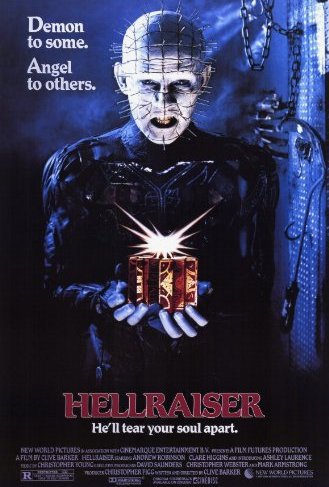 Hellraiser is an absolutely terrifying movie, and not just because of Pinhead. It appeals to the dark urges that lurk in the back of the psyche, manipulating you into each more terrifying progression of the story and drawing you in to a world of blood, pain, sex, betrayal, and dark magic. The movie is nearly perfect, and is still just as traumatic as it was when it was released in the eighties. The same can be said for the book, as Barker both wrote the novella and directed the movie, a rare feat made even rarer still by how well it was managed.
Hellraiser is an absolutely terrifying movie, and not just because of Pinhead. It appeals to the dark urges that lurk in the back of the psyche, manipulating you into each more terrifying progression of the story and drawing you in to a world of blood, pain, sex, betrayal, and dark magic. The movie is nearly perfect, and is still just as traumatic as it was when it was released in the eighties. The same can be said for the book, as Barker both wrote the novella and directed the movie, a rare feat made even rarer still by how well it was managed.
That doesn’t mean that it’s a feat that’s easy to pull off though, a fact that Barker himself proved later on in his career. He went on to direct other movies based on his own books, Nightbreed (1990) and Lord of Illusions (1995). Both of these movies are, in short, terrible. Nightbreed, while watchable and even somewhat enjoyable, bombed badly, even though the novella it was based on, Cabal (1988) is quite excellent. The concepts and story didn’t translate to the screen. Either Barker didn’t have the skills to do so, or the concepts in the book were simply not something easily shifted into a visual medium. Regardless, Nightbreed is not the horror spectacle that Barker managed to make of Hellraiser only three short years before. And then there was Lord of Illusions. Oh, Lord of Illusions. Another excellent Barker novella…and an atrocious movie. It starts out dark and violent, and quickly turns to a confusing mess that one might expect to have been rewritten several times by several different scriptwriters. The movie ends up piquing the viewer’s interest and then leaving them gore-soaked but ultimately unfulfilled. When Lord of Illusions was released, it was rumored that there was a scene in the film where the mandrill raped a woman, and that the scene had to be cut to be released, but none of the deleted scenes contains the infamous monkey rape scene, only some moderately steamy sex scenes with Scott Bakula and Famke Janssen of X-Men fame.
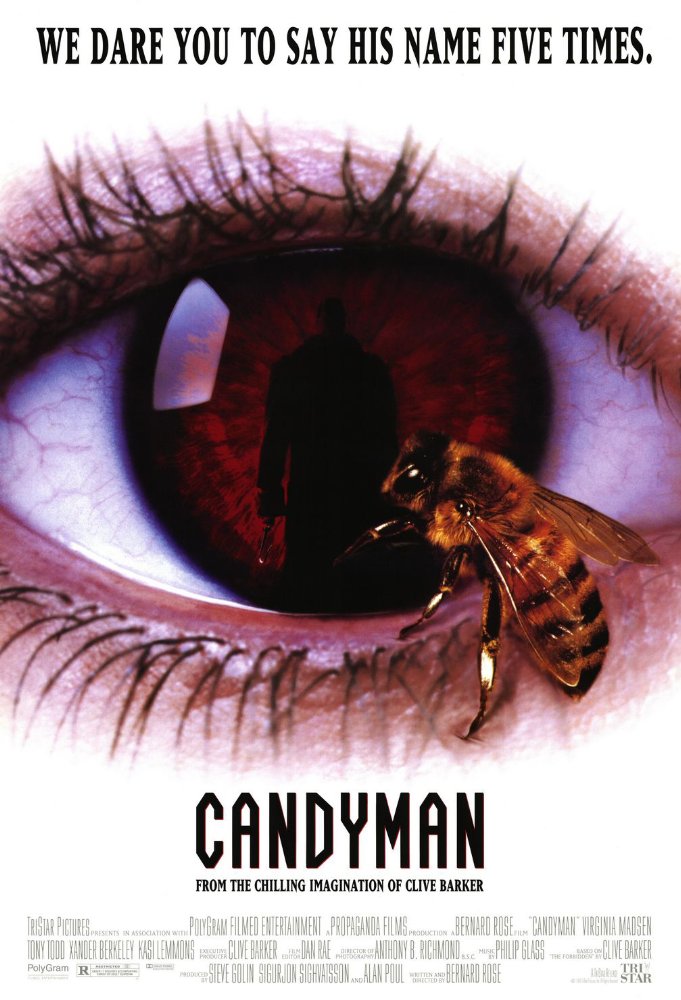
So where did Barker go wrong? Hellraiser was an unquestionable success, but why were Nightbreed and Lord of Illusions so much worse? This is the key issue with adapting a horror movie from outside source content. Words take us places that are often difficult to portray visually. Even if you can envision the entire story in your mind’s eye, recreating it in a manner that holds the same terror encapsulated in those pages is a hit-or-miss prospect at best. Some of Barker’s other works have been made into successful films by other directors, such as Candyman (1992) which is based on a short story from Barker’s earliest book, the Books of Blood (1984). In fact, Books of Blood (which consists of 6 small volumes in two collections) has spawned a plethora of movies, including Dread (2009), The Midnight Meat Train (2008), and several others. The three aforementioned movies are all quite excellent and faithful to the spirit of the short stories they are based on as well, so if you’re looking for an obscure new horror title to check out, hunt them down.
So what’s the verdict? It seems there’s no way to predict whether a movie adaptation will be good or bad until we watch it. But some of the most interesting content in movies can be had from that source content and ultimately, even if the movie isn’t the greatest, reading the book might be. So next time you’re watching the opening credits of a movie and you see that it’s based on a book or comic, consider checking that book out at your local library or scrounging up a copy at a book store or on Amazon. You might find out that you’ve been missing out on a whole new level of terror!
Addendum – Reading Suggestions For Further Consideration:
For those of you who are interested in reading some horror as well as watching it, I highly recommend the early works of Clive Barker. These include Books of Blood, Cabal, The Hellbound Heart, The Damnation Game, The Thief of Always (young adult novel and still scary as hell!), and more. His later work isn’t nearly as edgy as his early work however, and tends more towards the fantastic instead of the horrifying. In addition, the early works of Stephen King are also quite good, though not nearly as mind-bendingly disturbing as Barker usually.
Other interesting horror titles that you might want to try include Infected by Scott Sigler, Autumn by David Moody, Horns by Joe Hill, The Hatching by Ezekiel Boone, and Relic by Douglas Preston and Lincoln Child.
Links are included in the titles for convenience! Enjoy!
